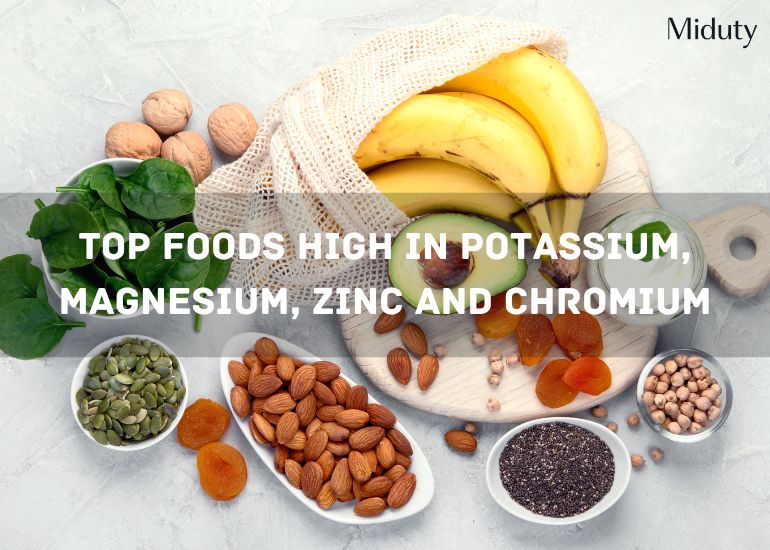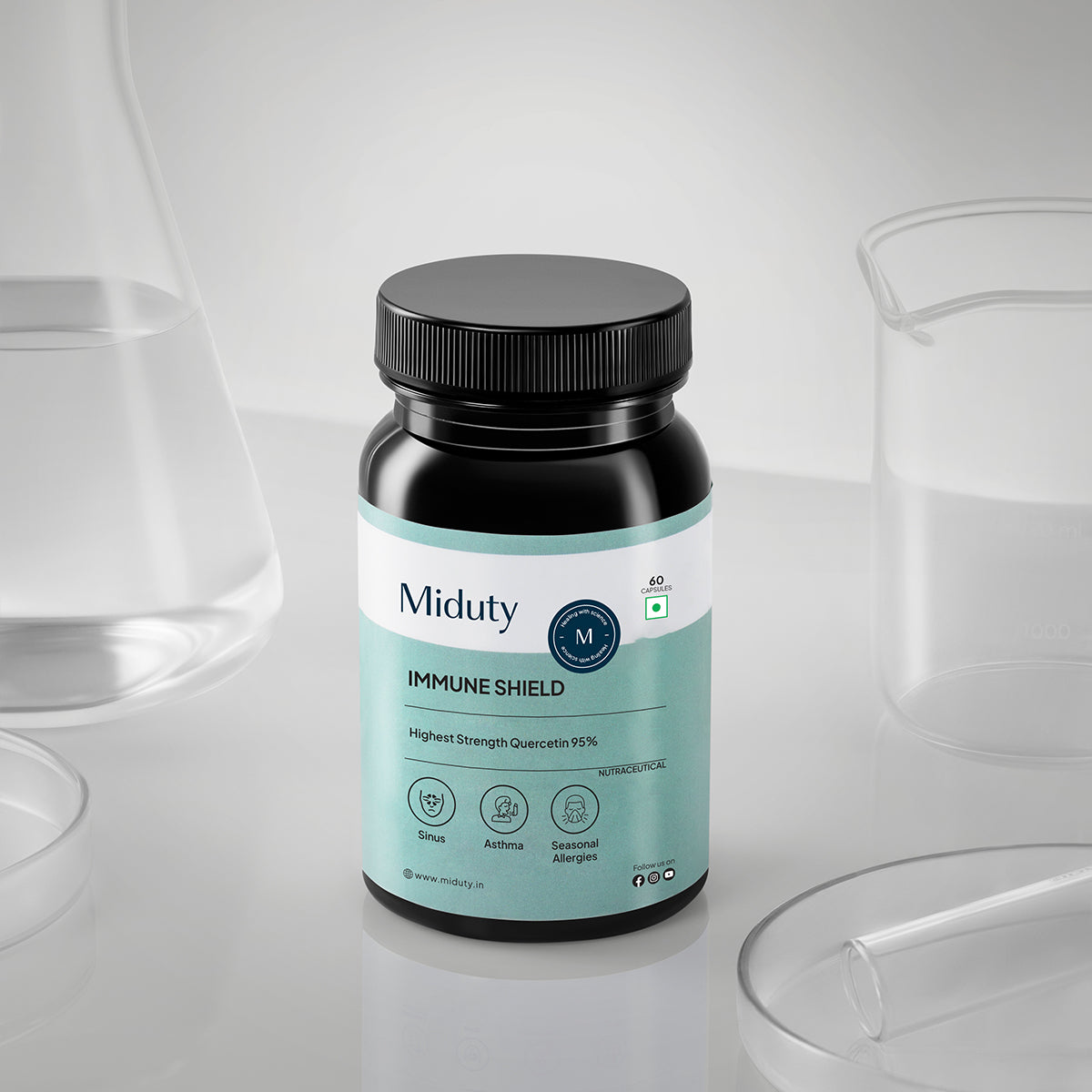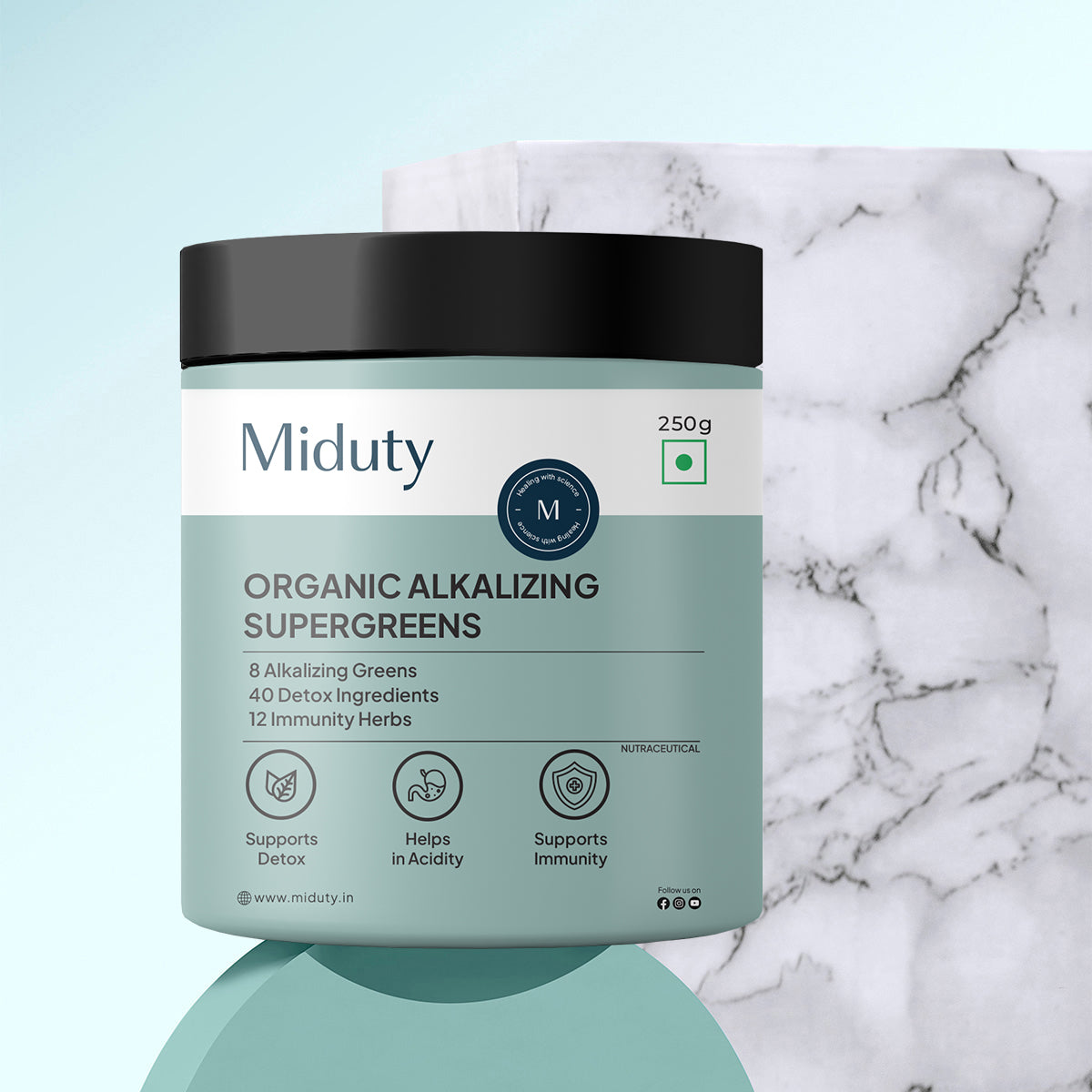
Top Foods High in Potassium, Magnesium, Zinc, and Chromium
Key Takeaways
1. Micronutrients Are Vital for Health: Magnesium, chromium, zinc, and potassium are essential for various bodily functions, including metabolism, heart health, immune support, and muscle function.
2. Magnesium Supports Key Bodily Functions: Magnesium helps with muscle function, energy production, and nerve transmission, and is found in foods like leafy greens, legumes, nuts, seeds, and fatty fish.
3. Chromium Helps Regulate Blood Sugar: Chromium plays a key role in insulin sensitivity and metabolism and can be found in foods like broccoli, green beans, tomatoes, and sweet potatoes.
4. Zinc Boosts Immunity and Healing: Zinc is crucial for immune function, wound healing, and DNA synthesis, with rich sources including shellfish, pumpkin seeds, chickpeas, and dairy products.
5. Potassium Is Essential for Heart Health: Potassium helps regulate blood pressure and fluid balance and is abundant in foods like bananas, avocados, sweet potatoes, beetroot, and coconut water.
In today's busy world, it's easy to overlook the small things that keep us healthy. Between work, errands, and everything else, we often grab quick, processed meals instead of nourishing foods.
Most of us don't think about how many calories we eat daily-we just eat to get by and stay full. But it's important to pay attention to what we're putting into our bodies because the food we eat fuels not just our energy but also our overall health.
We all know about vitamins, but minerals often get overlooked. While vitamins are essential for things like boosting immunity or helping us heal, minerals like magnesium, zinc, potassium, and more.
Things like magnesium, chromium, zinc, and potassium might not always be on our radar, but they play a huge role in everything from keeping our energy up to supporting our heart and immune system.
Understanding the Power of Magnesium, Chromium, Zinc, and Potassium
Before diving into the foods, let's briefly explore why these nutrients are essential.
1. Magnesium supports muscle function, energy production, and nerve transmission. It helps regulate over 300 biochemical reactions in the body. [1]
2. Chromium enhances insulin sensitivity, making it crucial for blood sugar regulation and metabolism. [2]
3. Zinc is vital for immune function, wound healing, and DNA synthesis. It plays a key role in maintaining taste and smell. [3]
4. Potassium helps maintain fluid balance, regulates blood pressure, and is essential for proper muscle and nerve function. [4]
With these benefits in mind, let's explore the best foods to incorporate into your diet.
Magnesium-Rich Foods

1. Leafy Greens: Spinach, Swiss chard, and kale are not just packed with vitamins but also excellent magnesium sources. Toss them into salads, smoothies, or stir-fries for an easy boost.
2. Legumes: Black beans, chickpeas, and lentils are magnesium powerhouses. They are versatile and can be added to soups, and salads, or made into spreads.
3. Nuts and Seeds: Almonds, cashews, pumpkin seeds, and sunflower seeds are not only delicious but also rich in magnesium. A handful of nuts and seeds as a snack, soaked or sprinkled over your meals, can do wonders.
4. Fish: Fatty fish like salmon and mackerel are great sources of magnesium. Try grilling or baking them with herbs for a nutritious meal.
Chromium-Rich Foods

1. Broccoli: This green vegetable isn't just high in fiber; it's also rich in chromium. Steam or roast it for a tasty side dish.
2. Green Beans: A simple and delicious source of chromium, green beans can be sautéed or added to stir-fries for extra crunch.
3. Tomatoes: Fresh tomatoes or sun-dried varieties provide a healthy dose of chromium. Use them in salads, sauces, or as toppings for various dishes. Tomatoes should be consumed in peeled form to reduce lectin content, as lectins can be difficult to digest and may cause discomfort in some individuals. Peeling helps lower the potential negative effects of lectins while still retaining the tomato's nutritional benefits.
4. Sweet potatoes: These are rich in chromium. Bake or mash them for a nutritious comfort food option.
Zinc-Rich Foods

1. Shellfish: Oysters are renowned for their high zinc content, but crab and lobster are also excellent sources. Enjoy them grilled, steamed, or in a stew..
2. Pumpkin Seeds: Not only are they rich in magnesium, but pumpkin seeds are also a great source of zinc. Snack on them raw or roasted for a tasty treat.
3. Chickpeas: In addition to being a magnesium source, chickpeas are high in zinc. Make hummus or toss them in salads for added nutrition.
4. Zinc-rich vegetables: Zinc-rich vegetables include Spinach, Mushrooms, Kale, Broccoli, Peas, Swiss chard, Asparagus, and Brussels sprouts, all of which support immune function and overall health.
Potassium-Rich Foods

1. Bananas: A classic potassium-rich food, bananas are perfect for a quick snack. Try adding them to smoothies or oatmeal for natural sweetness.
2. Avocado: This creamy fruit is loaded with potassium. Spread it on toast, blend it into smoothies, or enjoy it in salads.
3. Sweet Potatoes: Aside from being rich in chromium, sweet potatoes are also a fantastic source of potassium. Bake or mash them for a wholesome side.
4. Beetroot: This vibrant vegetable is not only visually appealing but also packed with potassium. Roast or juice them for a nutritious boost.
5. Coconut Water: A refreshing beverage that is rich in potassium, coconut water is a great alternative to sugary drinks. Enjoy it post-workout for hydration.
Meal Ideas to Maximize Nutrient Intake
Breakfast
Start your day with a smoothie that includes spinach, banana, and almond milk. Add some pumpkin seeds for an extra crunch. Alternatively, you can also choosean egg omelet with veggies/basen chilla and a scoop of a probiotic and prebiotic supplement
Lunch
Enjoy a chickpea salad with tomatoes, green beans, and avocado, drizzled with olive oil and lemon juice. You can also take kidney beans with oats roti.
Dinner
Grill a salmon fillet and serve it alongside roasted sweet potatoes and steamed broccoli. This meal combines magnesium, chromium, zinc, and potassium for a nutrient-dense dinner.
Snacks
Opt for almonds or pumpkin seeds for a healthy snack. You can also enjoy yogurt topped with chopped fruits like bananas or avocados for added flavor and nutrients.
Conclusion
Incorporating foods rich in magnesium, chromium, zinc, and potassium into your diet doesn't have to be daunting. With a variety of delicious options, you can create balanced meals that nourish your body and enhance your overall well-being.
By focusing on these essential nutrients, you'll be well on your way to a healthier lifestyle. Make small changes today, and watch as your energy and health improve over time!
Frequently Asked Questions on Foods Rich in Cr, Zn & K -
Q1: Are bananas high in chromium?
Bananas are not considered a significant source of chromium. While they do contain small amounts of chromium, the levels are relatively low compared to other foods like broccoli, whole grains, and meats.
Q2: How to get zinc and potassium?
To get zinc, consume foods like meat, shellfish, beans, and seeds. For potassium, eat bananas, potatoes, spinach, and beans.
Q3: How can I check my Zinc levels?
You can check your zinc levels through a blood test or a urine test, typically ordered by a healthcare provider.
Q4: What are signs of low potassium?
Symptoms of low potassium include muscle weakness, cramps, irregular heartbeats, fatigue, constipation, tingling, and mood changes.
Q5: Can drinking a lot of water lower potassium levels?
Drinking excessive amounts of water can dilute potassium levels in the blood, potentially leading to a condition called hyponatremia, which can indirectly affect potassium balance.
References













